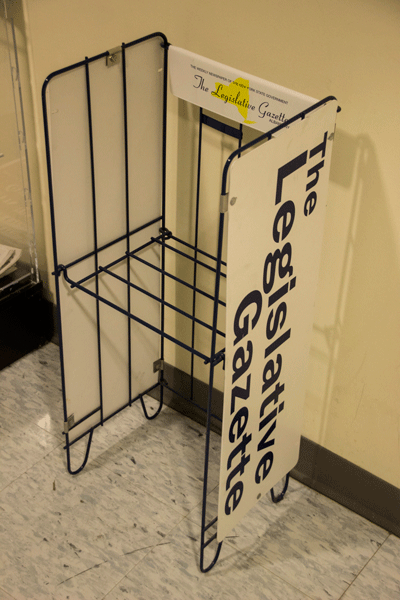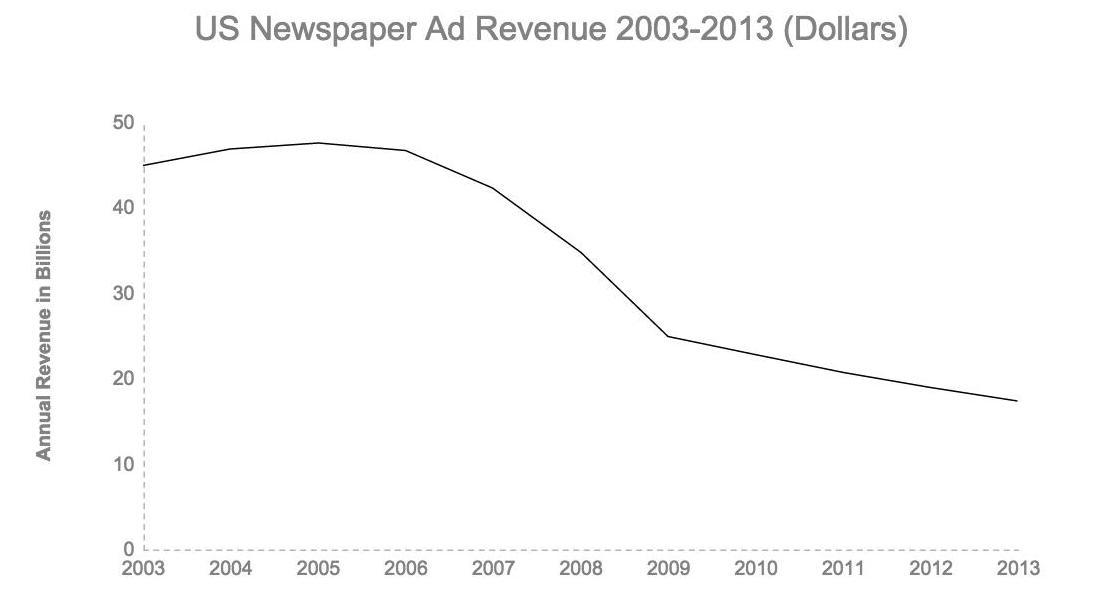
The Legislative Gazette, a weekly newspaper dedicated to covering New York State politics, has stopped printing and will be switching to an online-only structure by January of next year. The Gazette, headquartered next door to the State Legislature in Albany, is sponsored by SUNY New Paltz and composed entirely of intern writers.
“We were running out of money,” said publisher Alan S. Chartock. “We tried desperately to keep it printing, but we just didn’t have enough money to keep it going.”
Chartock, President and CEO of WAMC radio and former SUNY New Paltz professor, has been publishing The Gazette for over 30 years. He understood that changes needed to be made to adapt to the changing media landscape.
“We saw it coming for about two to three years,” Chartock said. “We tried to arrange partnerships with all kinds of places. They were very polite and respectful, but they and everyone else knew that this thing wasn’t going to work out.”
This strategic change is not shocking, as the print newspaper industry has been consistently declining since the introduction of new forms of media and advertising. The unsustainable financial situation faced by The Gazette is common around the U.S. and isn’t getting better anytime soon.
“It’s not just us, it’s a national phenomenon,” Chartock said. “We all know where journalism is going, and that’s online. Even The New York Times has switched their focus to an online news
model.”
From 1940 to 2014, the U.S. population grew from 132 million people to about 319 million. It also went from having 1878 daily newspapers to 1331. More people are ingesting news media than ever before, but online news offers a better experience for advertisers and readers.
“People are not advertising in newspapers anymore,” Chartock said. “They can advertise at a lower rate and get better performance online.”
Cost Per Mille (CPM) based advertising is the standard for online articles and generally allows advertisers to reach more eyeballs at a lower rate. Modern analytics also allow online advertisers to make sure that their product reaches their target audience.
The live and up-to-date aspect of online news and social media also exposes the evident limitations of print newspapers.
“If I get the morning paper and it’s telling me about something that happened last night, that’s old news,” Chartock said. “I could have read about that yesterday.”
Websites such as Twitter give some readers all the news they need for the day, without having to pay anything or sift through advertisements. News websites pump out articles in real-time, something newspapers could never compete with. Even classified sections in newspapers were made obsolete by websites such as Craigslist. Now that print newspapers have websites, there’s almost nothing exclusive to print publications and there’s little reason to pick up a paper unless you outright prefer it.

In one decade, print newspaper revenue dropped by over 50 percent. It’s estimated that by the end of 2015 revenues will have dropped by at least another $2 billion from the $17.3 billion figure in 2013.
Where print newspapers are losing money, digital newspapers are not making up the difference. Even though the audience for digital newspapers continues to grow, the NAA estimated that revenue from digital news sources only accounted for 12 percent of all newspaper revenue in 2013. The CPM advertising model is hurtful for online newspaper revenue and readers are hesitant to sign up for a subscription.
“People are not willing to pay the same online,” Chartock said. “The business models that existed for newspapers don’t work anymore.”
Despite all of these concerns, The Gazette’s main goal is not to make large profits, but provide in-depth reporting on New York State politics and provide interns with valuable reporting experience.
The newspaper has claimed two Pulitzer Prizes over its 37 years of operation and has given its interns jobs across the country, including positions at The New York Times, Washington Post and New York Post.
The Gazette has the support of SUNY New Paltz and the Research Foundation and will continue to do everything it did before, only online. It will still be written by interns and will still offer a weekly political science seminar.
“The paper has a basic educational mission, and that function will continue,” Chartock said.
The Gazette is on hiatus until January, when the legislature is back in-session. It will return after going through restructuring.
